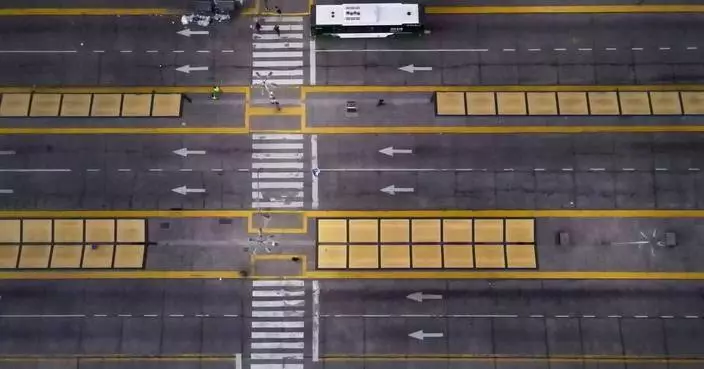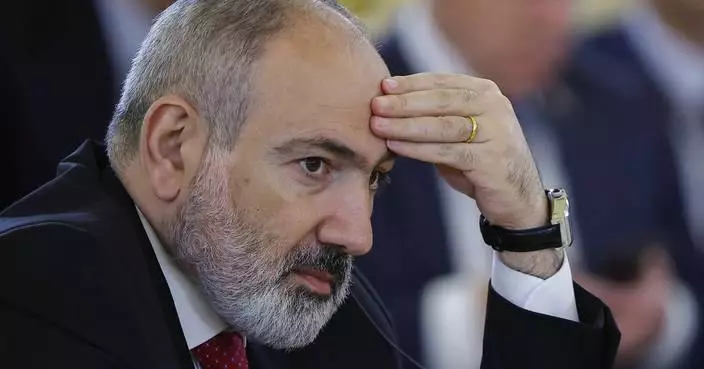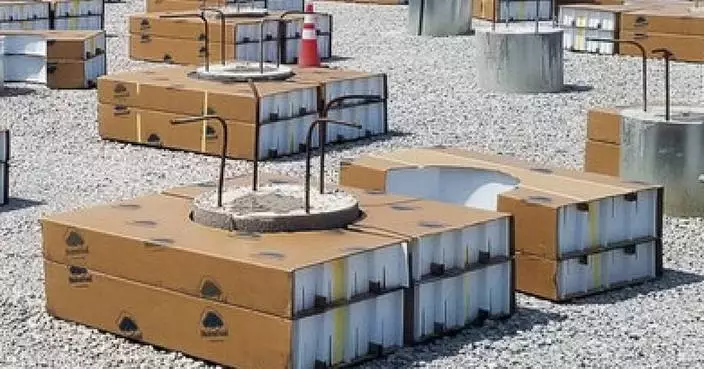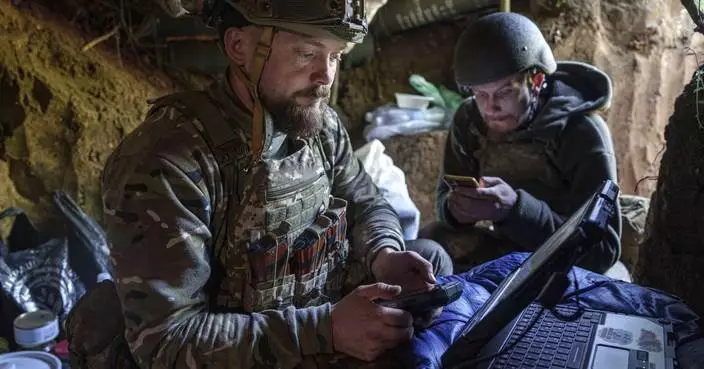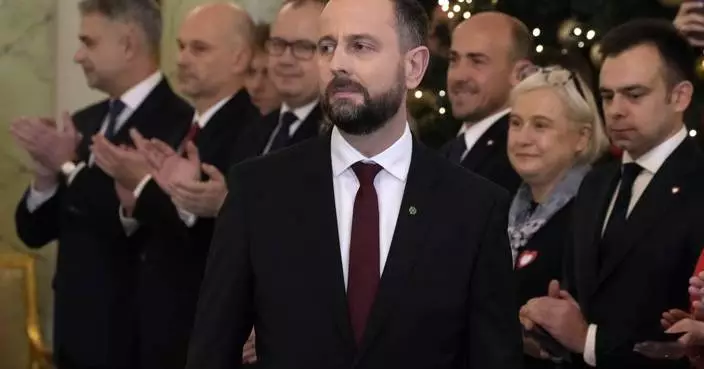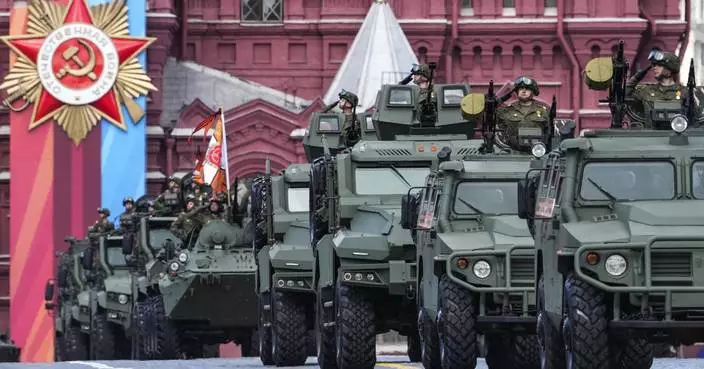Nerve agent victim Charlie Rowley has been released from the hospital after three weeks of treatment since being poisoned, U.K. officials said Friday.
Lorna Wilkinson, the director of nursing at Salisbury District Hospital, said Rowley, 45, had been discharged after making substantial progress in recent days.
"Charlie has been through an appalling experience most of us could never imagine," she said. "Today is a very welcome milestone in his recovery."
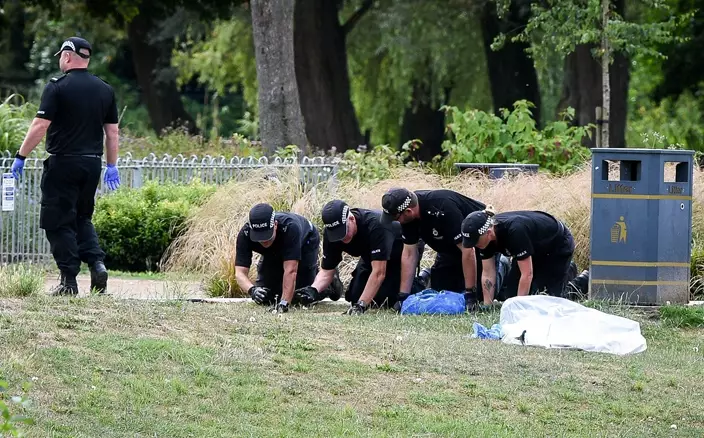
Police conduct fingertip searches of Queen Elizabeth Gardens, in Salisbury, which British woman Dawn Sturgess visited before she fell ill after being exposed to nerve agent Novichok, Thursday, July 19, 2018. Senior coroner David Ridley opened an inquest into the poisoning death of Sturgess Thursday, but said the cause of Sturgess' death won't be given until further tests are completed. (Ben Birchall/PA via AP)
Officials say Rowley and his partner Dawn Sturgess fell ill June 30 after being exposed to the nerve agent Novichok when they handled a small bottle containing the nerve agent. Officials believe the substance was from the same batch used in the March nerve agent attack on ex-Russian spy Sergei Skripal and his daughter Yulia.
Sturgess, 44, died in the hospital on July 8, eight days after she became violently ill at Rowley's home in Amesbury in southwestern England. Rowley became ill several hours later with similar symptoms. Police initially thought the two had taken contaminated heroin or crack cocaine but tests indicated they were poisoned by Novichok.
Novichok was produced by the Soviet Union during the Cold War. Britain has blamed Russia for poisoning the spy and his daughter, who both recovered after lengthy hospitalizations, as well as accidently poisoning Rowley, Sturgess and a police officer who aided the Skripals.
Russia has strongly denied the charges. The poisoning of the spy ignited a diplomatic confrontation in which hundreds of envoys were expelled from Russia and Western nations.
The second round of nerve agent poisonings put the towns of Amesbury and Salisbury, where Sturgess lived, on edge as more than 100 counterterrorism officers searched for the source of the Novichok.
Nursing director Wilkinson said "many people" had come to the hospital concerned about possible exposure to Novichok but that only the five victims already identified had been exposed to the lethal nerve agent.
She said Public Health England has determined that Rowley "poses no risk to the public" now that he is out of the hospital.
Wiltshire Police Chief Constable Kier Pritchard said police will work with local agencies to make sure Rowley gets the support he needs as he continues to recover.
British officials have taken the Skripals to a secret location for their own protection.
VILNIUS, Lithuania (AP) — Lithuania is holding a presidential election on Sunday at a time when Russian gains on the battlefield in Ukraine are fueling greater fears across all of Europe about Moscow's intentions, but particularly in the strategically important Baltic region.
The popular incumbent, Gitanas Nausėda, is favored to win another five-year term. But there are eight candidates running in all, making it unlikely that he or any other candidate can win the 50% of the votes needed to win outright on Sunday. In that case, a runoff would be held two weeks later on May 26.
The president's main tasks in Lithuania’s political system are overseeing foreign and security policy, and acting as the supreme commander of the armed forces. Those duties and the nation's strategic location along NATO's eastern flank amid a larger geopolitical standoff between Russia and the West add heft to the role despite Lithuania's relatively small size.
There is great concern in Lithuania, and in neighboring Latvia and Estonia, about Russia's gaining momentum in Ukraine. All three Baltic states declared independence after the collapse of the Soviet Union and took a determined westward course, joining both the European Union and NATO.
Nausėda, a moderate conservative who turns 60 a week after Sunday's election day, has been a strong backer of Ukraine, a position shared across most of the political spectrum. During his time in office, Lithuania has also given refuge to many who have fled an authoritarian crackdown in neighboring Belarus and increased repression in Russia.
Nausėda, a former banker who entered politics with his successful presidential run in 2019, is seen as the “safe choice for voters of almost all ideological persuasions," said Tomas Janeliūnas, an analyst at Vilnius University's Institute of International Relations and Political Science.
Polls show that his main opponents are Ignas Vėgėlė, a populist lawyer, who is in second place according to recent opinion polls, and Prime Minister Ingrida Šimonytė, who is in third place in the surveys.
Not all voters view Nausėda as the safer option.
Asta Valanciene, a teacher from Vilnius, said that she would vote for Šimonytė because of the prime minister’s longer experience in politics than newcomer Nausėda.
“I would rather give her a chance than witness another five years of this random guy in office. I simply trust professionals,” Valanciene said.
A former finance minister, Šimonytė became prime minister in 2020 after a failed presidential run in 2019, with Nausėda winning that election with 66% of the votes in the runoff.
Vėgėlė gained popularity among some Lithuanians during the COVID-19 pandemic by harshly criticizing the lockdown and vaccination policies of the current government.
A second-place win for Vėgėlė could propel him to a prominent role in national politics before Lithuania's parliamentary election this fall — and would be a sharp blow to the prime minister, said Rima Urbonaitė, a political analyst at Mykolas Romeris University in Vilnius.
“For first place, everything is almost clear, but it's hard to say who else would get into the second round. Nausėda’s chances of reelection are high. However, this time, second place becomes very significant,” Urbonaitė said.
While both Nausėda and Šimonytė are strong advocates of greater military spending and big supporters of Kyiv, several other candidates call aid to Ukraine an invitation for Russia to invade Lithuania.
Vėgėlė's comments on the issue of aid to Ukraine have sometimes been vague, and he has mocked those who advocate increasing defense spending to 4% of gross domestic product, double NATO's target.
A referendum is also on the ballot Sunday. It asks whether the constitution should be amended to allow dual citizenship for hundreds of thousands of Lithuanians living abroad.
Lithuanian citizens who adopt another nationality currently must give up their Lithuanian citizenship, creating vulnerabilities for a nation whose population has fallen from 3.5 million in 1990 to 2.8 million today.
If it passes, the parliament would be able to amend the 1992 Constitution so people who have acquired Lithuanian citizenship by birth will be able to keep it if they acquire citizenship of another country "friendly to Lithuania."
A similar attempt to change the fundamental law failed in 2019 because turnout was below a required 50% of registered voters to be valid.
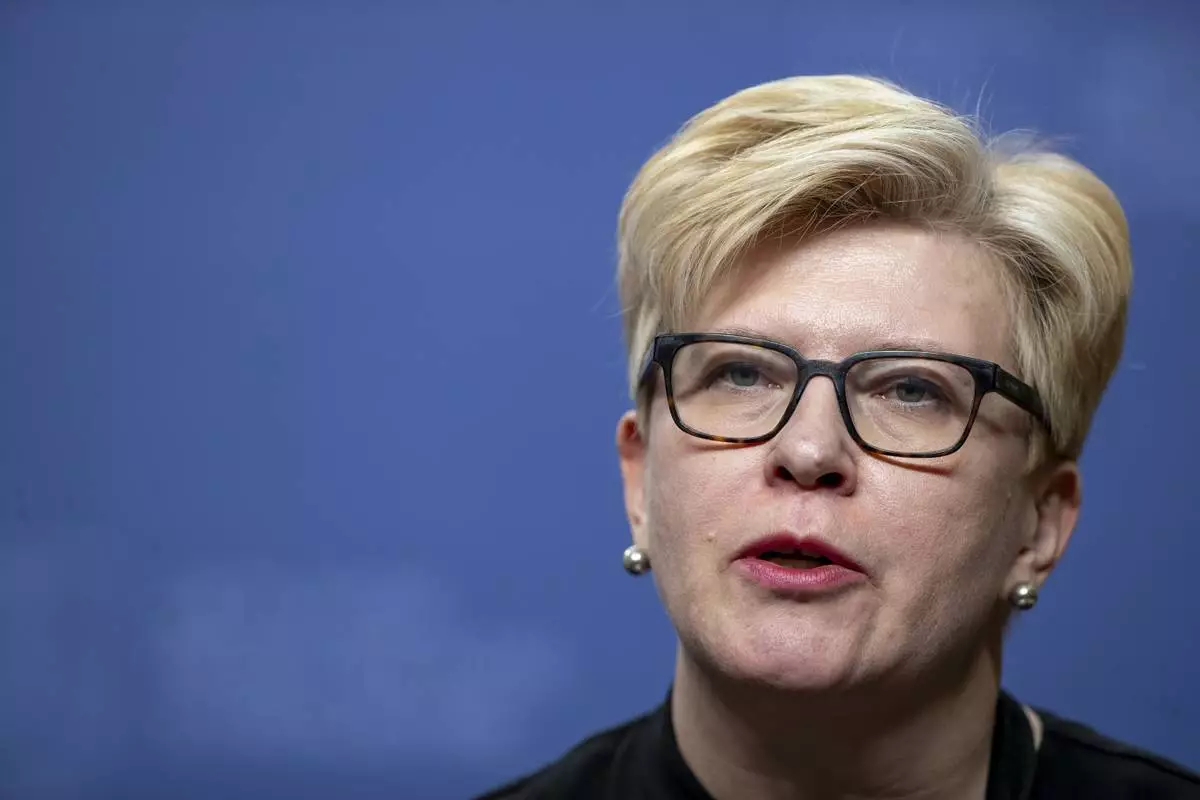
FILE - Lithuania's Prime Minister Ingrida Simonyte speaks during a news conference following his meeting with Poland's Prime Minister Donald Tusk at the government's headquarters in Vilnius, Lithuania, on March 4, 2024. Lithuania is holding a presidential election on Sunday May 12, 2024 at a time when Russian gains on the battlefield in Ukraine are fueling greater fears across all of Europe about Moscow's intentions, but particularly in the strategically important Baltic region. (AP Photo/Mindaugas Kulbis, File)
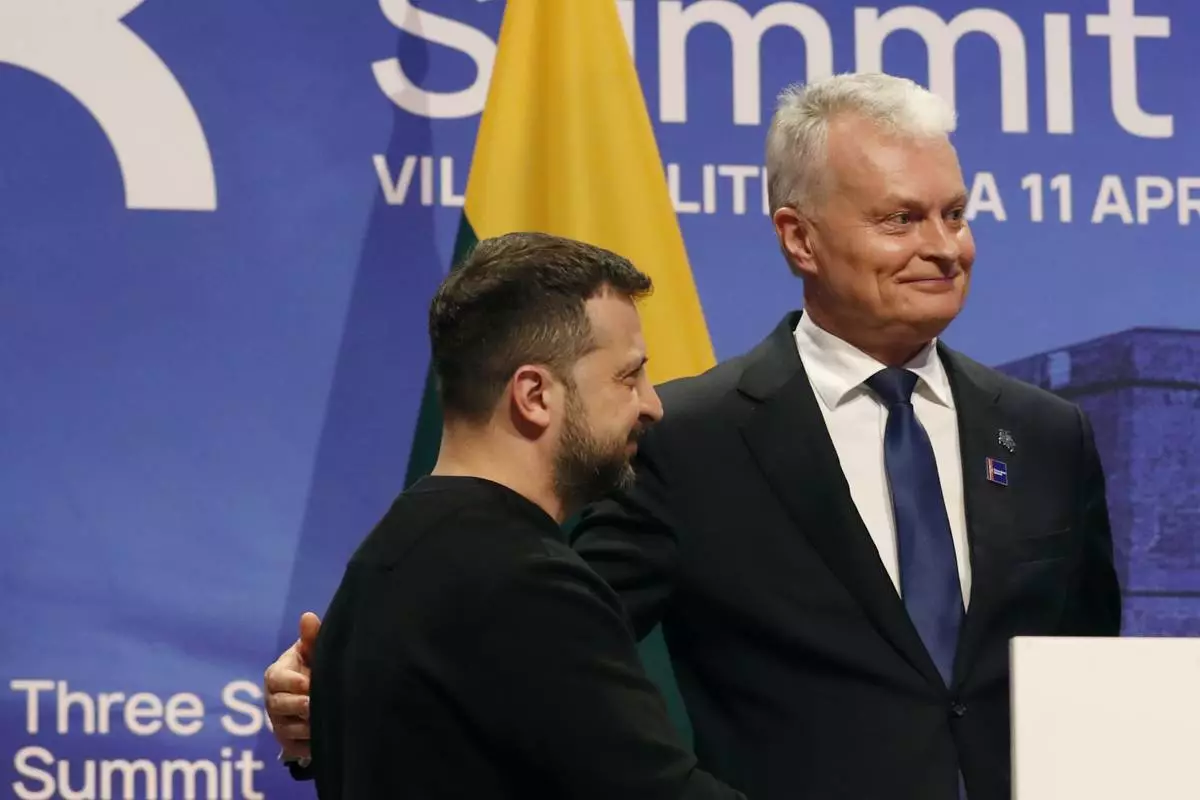
FILE - Ukraine's President Volodymyr Zelenskyy, left, stands with Lithuania's President Gitanas Nauseda after addressing a media conference at the Palace of the Grand Dukes of Lithuania during the Three Seas Initiative Summit and Business Forum in Vilnius, on April 11, 2024. Lithuania is holding a presidential election on Sunday May 12, 2024 at a time when Russian gains on the battlefield in Ukraine are fueling greater fears across all of Europe about Moscow's intentions, but particularly in the strategically important Baltic region. (AP Photo/Mindaugas Kulbis, File)
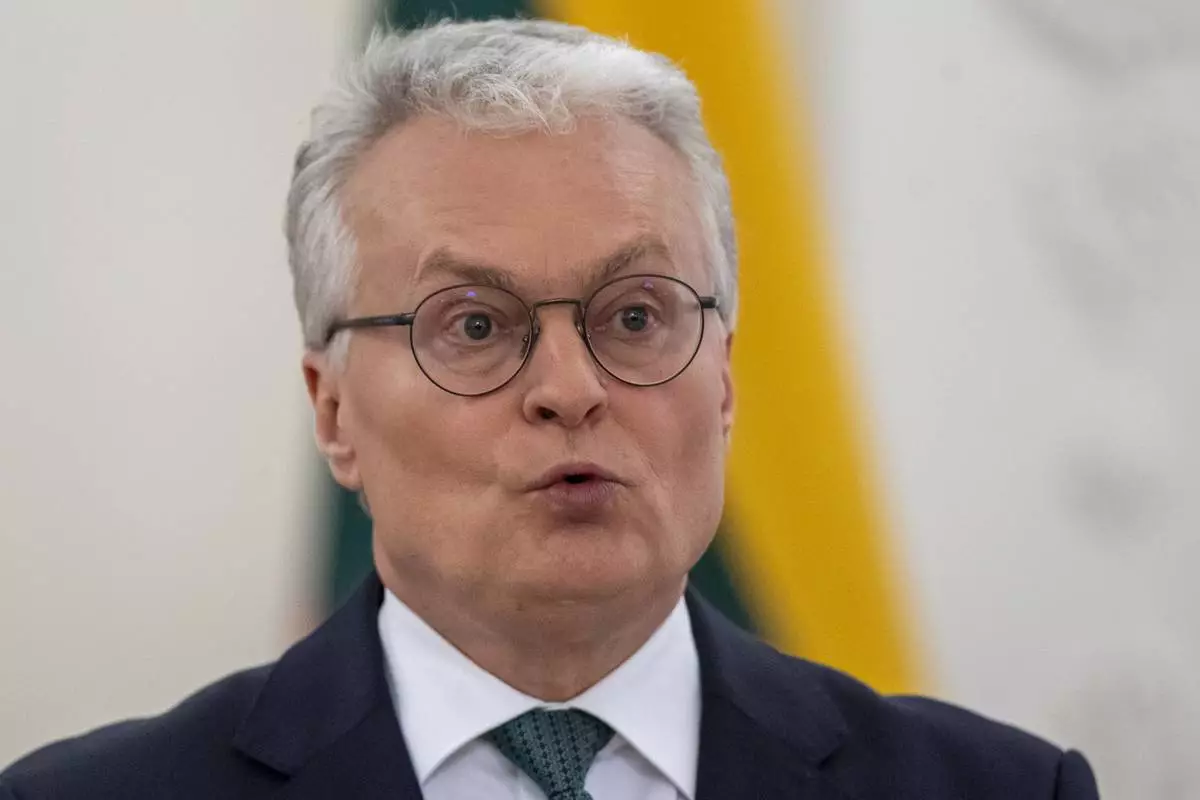
FILE - Lithuanian President Gitanas Nauseda speaks during a joint media conference with Dutch Prime Minister Mark Rutte at the Presidential palace in Vilnius, Lithuania, on April 2, 2024. Lithuania is holding a presidential election on Sunday May 12, 2024 at a time when Russian gains on the battlefield in Ukraine are fueling greater fears across all of Europe about Moscow's intentions, but particularly in the strategically important Baltic region. (AP Photo/Mindaugas Kulbis, File)







